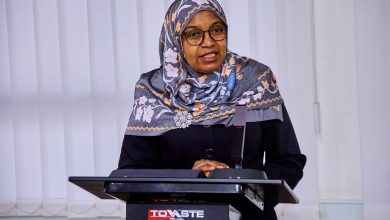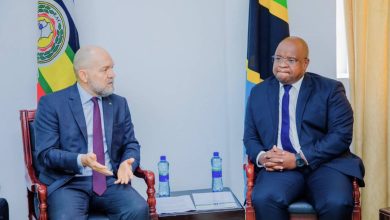Experts validate training manual to strengthen marital reconciliation

ARUSHA: A team of about 40 legal experts is meeting in Arusha for a two-day session to validate a training manual designed to support reconciliation in marital conflicts across Mainland Tanzania.
In his opening remarks, Permanent Secretary in the Ministry of Constitution and Legal Affairs, Mr Eliakim Maswi, reminded participants that the family is the foundation of upbringing, morals and social well-being.
He noted that strong marriages build strong families, which in turn create cohesive societies and a resilient nation. However, he cautioned that marriages in Tanzania face growing challenges, ranging from disputes and divorce to, in extreme cases, loss of life, leaving children vulnerable and families fractured.
Citing official records, Mr Maswi revealed that divorce cases have surged sharply in recent years: 523 in 2021, 447 in 2022, 711 in 2023, and 1,569 in 2024.
“These challenges extend beyond the couple to affect children, relatives and society at large. We are all witnesses to the reality that many street children are a result of parents separating or dying due to marriage-related conflicts,” he said.
Mr Maswi attributed the rise in divorce partly to weaknesses in the performance of Marriage Reconciliation Boards, which has led to more cases being taken directly to court.
ALSO READ: Project set to transform communication sector
In response, he said the government is determined to strengthen alternative mechanisms for resolving marital disputes through reconciliation, particularly by building the capacity of board members and administrators.
“It is our conviction, as a Ministry and as a Nation, that marital conflicts should be resolved through alternative means. Strong Marriage Reconciliation Boards will help prevent the breakdown of many marriages and foster stronger families. Reconciliation is far better than court battles, which often leave lasting wounds and scars,” he said.
He added that the new manual, once validated, will serve as a practical tool for training trainers and service providers, ensuring that reconciliation processes remain participatory, transparent and rooted in Tanzanian cultural values, while upholding the dignity and differences of the parties involved.
Director of Public Legal Services in the Ministry, Ms Angela Anatory, stressed that reconciliation is vital in helping couples understand each other, eliminate hostility and create peaceful homes.
“It brings joy within households, ensures peace for children, and teaches couples to listen and foster better understanding. Even when divorce becomes inevitable, reconciliation ensures there is no hostility between the separated spouses,” she said.
Associate Professor Cyriacus Binamungu, Principal of Mzumbe University’s Dar es Salaam Campus, pointed out that some Marriage Reconciliation Boards and Ward Councils overstep their role by acting like courts, issuing judgments instead of offering mediation.
“Ninety-nine per cent of their work should be reconciliation, not judgments. This validated manual will help establish a common understanding among all stakeholders involved in marital conflict resolution,” he said.





